The emergence of APC in 2013 following the successful merger negotiations of the Action Congress of Nigeria (ACN), All Nigerian Peoples Party (ANPP), Congress for Progressive Change (CPC) and Owelle Rochas Okorocha’s faction of the All Progressives Grand Alliance (APGA) raised the hope of Nigerians about the prospect of producing a new political paradigm whereby the question of internal democracy within the new party will be stronger. Towards the conclusion of the merger negotiation, a faction of the Peoples Democratic Party (PDP) – New PDP – comprising five PDP Governors, former Vice President Atiku Abubakar and many PDP serving Senators and House of Representatives members, also joined the new party.
The expectation of Nigerians was that the culture of imposition of candidates for elections, which became the major attribute of PDP, will not be associated with APC. At least, in 2014, the APC was able to substantially meet those expectations as the primary conducted by the party was adjudged to be fair and inclusive. Across virtually all the states, candidates produced by the APC for the 2015 general elections were supported by all aspirants who contested primary elections. At national level, after the emergence of former President Muhammadu Buhari as the Presidential candidate of the APC for the 2015 elections, the other four aspirants, Dr. Rabiu Musa Kwankwaso, Alh. Atiku Abubakar, Owelle Rochas Okorocha and Mr. Sam Nda Isaiah of blessed memory, all declared their support for former President Buhari. Alh. Atiku Abubakar, in particular, expressed delight at the transparent conduct of the primaries and remarked that APC would “renew our democracy in the country”, emphasising that the APC Presidential primary is the “most credible and transparent election to be conducted by any political party.”
Join our WhatsApp ChannelNine years down the line, realities have changed. Culture of imposition of candidates is gradually taking over the APC. Beyond the creeping culture of imposition, organs of the party as provided in the APC Constitution are not allowed to function. Hardly any meeting takes place outside that of the National Working Committee (NWC), whose main function is administrative and saddled with the responsibility of implementing decisions of higher organs – National Executive Committee (NEC), National Advisory Council (NAC), and National Caucus. In the absence of meetings of these organs, the NWC has usurped their functions and powers. The implication of this is that invariably the APC has become very weak in terms of influencing the initiatives of elected representatives. Over time, within a space of less than nine years, APC governments at both federal and state levels have been alienated from APC members and leaders. To the extent of such alienation, elected representatives are behaving more like emperors, which increasingly is producing leadership crisis across all the states, especially in states controlled by the APC.
Being the ruling party, what affects the APC seems to be infecting all other parties in the country, in varying proportions. Problems of not allowing organs of the party to function have spread to the PDP. The leadership crisis is also consuming the Labour Party. The problems may be worse in other parties. Without doubt, Nigeria is faced with a deeper crisis of accountability. Elected leaders in Nigeria are behaving more like emperors. The culture of debate and contestation associated with democracy is being destroyed. Sycophancy has taken over politics. Political survival is today a function of being conformist. Even in APC, with claimed progressive orientation, leaders avoid open disagreement with elected leaders. Even when elected leaders make decisions that are unfair and unjust, leaders simply mute themselves.
Coming from the background of opposition to military rule, with all the attendant risk, it is very difficult to reconcile how under a democracy Nigerian politicians are being subdued. Otherwise, how can anyone explain the emergence of Dr. Abdullahi Umar Ganduje as the National Chairman of APC? I wish Dr. Ganduje has proven some of us wrong by demonstrating capacity and competence to lead the APC. Sadly, instead, with all that has happened since his emergence, he has proved almost all our criticism right. He has in every respect betrayed the confidence of President Asiwaju Bola Ahmed Tinubu and in many respects, put the President in a very difficult embarrassing position. Painfully, all the challenges facing the party before his emergence have gotten worse. Hardly, has he taken any initiative to resolve challenges facing the party. Instead, he uses the opportunity of being the National Chairman to restore lost privileges, having lost the elections in Kano State. For instance, one of the things he did once he emerged as the National Chairman was to appoint more than 270 aides, most of them from Kano State. Basically bringing all the people he worked with when he was Governor of Kano State to the APC National Secretariat.
READ ALSO: Politics Of Change: APC On The Brink
Allegations of corruption in the APC under the leadership of Dr. Ganduje are becoming stronger. With hardly a clearly defined funding framework, issues of lack of transparent financial management and diversion of resources in APC find expression in the open media. How can a party that has made so much history, emerging with so many high expectations, be reduced to the rubble and against the grain of almost everything it has promised? How can the first party in Nigeria to emerge following a successful merger negotiation of opposition parties, and the first to defeat a ruling party, be the one being alleged to have dashed the expectations of citizens in ways that dismissed all that has been achieved to individual ambitions of leaders? It is quite worrisome that political realities under the APC since 2015 are being equated to situations under PDP between 1999 and 2015. This is simply suggestive of a wide gap between what was promised and what is being delivered. Arguably, we could contest this, but given the reality of insecurity in the country, for instance, which was one of our major campaign promises in 2015, we need to admit the existence of this gap.
Perhaps, a major issue, which must be recognised is that the existence of a gap between what was promised and what is being delivered is not on account of failure to initiate actions in line with what was promised. Certainly, actions were initiated. But combinations of the slow phase of initiatives, often not in line with specifications provided in the APC manifesto, and poor or weak relationships with citizens are responsible for the existence of such gaps. Ideally, being a party envisioned to be progressive, it should be expected that APC will take steps to strengthen its relationship with citizens. Developing strong relationships with citizens should take bearing from having stronger relations with party members. For a party to have stronger relations with members presupposes the existence of functional party structures, based on which meetings are taking place on a regular basis.
These were some of the expected changes APC promised, which would have earned it the desirable progressive credentials. Arguably, rather than expanding the democratic space in Nigerian politics, Nigerian democracy is being contracted. As a result, the capacity of party members to influence the decisions of elected representatives, across all Nigerian parties, is almost zero. Both at the National and State levels, governments have been unable to meet the expectations of both party members and Nigerians. Increasingly, this is weakening the support base of political parties. The danger this poses is that out of frustration, Nigerians could support any opposition candidate and party to defeat a ruling party with hardly any prospect of changing existing reality. Very worrisome also is the fact that elected leaders, including President Asiwaju Tinubu, are in denial of this danger or believe that they can surmount it without resolving the problem of imposition of candidates and discretionary decisions of the National Chairman, which undermines internal party democracy.
The fundamental question, which needs to be addressed is, does this mean that APC, which emerged with all the prospects of changing this ugly political reality has been lost? Or is it a case that the vision that guided the whole merger negotiation, which produced the APC is no longer relevant? To the contrary, more than ever before, the vision of producing a progressive party, which should produce progressive governments that are both responsive and representative to the wishes of Nigerians, is very desirable. Being responsive and representative can only emerge by producing a party that is functional. Part of what the current reality of Nigerian democracy has produced is the question of whether if APC is unable to meet the expectations of Nigerians, can a new party achieve that? Or if both former President Muhammadu Buhari and President Asiwaju Tinubu have disappointed Nigerians, can Nigerians invest their trust on another leader or leaders?
Whichever way it is looked at, it boils down to choices. Opportunistic politicians will seek to impose their choices based on the estimation of personal electoral advantages. Despondently, also, is the corresponding reality whereby those who dared the odds and cautioned leaders against the domineering practices of sycophancy become outcasts. Leaders prefer to relate with sycophants than to accommodate people who are truthful. Being declared outcasts, many of us are being denied access to leaders at both national and state levels. Certainly, we must accept responsibility for whatever situation we are confronted with. However, rather than follow the opportunistic bandwagon of becoming conformists and supporting the current democratic recession in the country, it will be more honourable to remain resilient and continue to campaign for deeper political reforms. It certainly comes with heavy costs, including loss of personal privileges.
Without doubt, many are not preferred for such challenges. Nonetheless, these are challenges that must be overcome if the campaign for deeper reforms in Nigerian politics must succeed. On no account, should the campaign for deeper political reforms in Nigeria be allowed to be reduced to conformist standards. Once that is the case, we will continue to elect leaders who will fail to meet the expectations of citizens. It will be more prospective to reform current leaders than produce new leaders based on the expectation that, that alone can resolve our political challenges. To the extent of producing new leaders who are unable to meet citizens’ expectations, Nigerian democracy will be weak in terms of responsiveness and representation and therefore, anything but democratic. What is it that can be done to address such a problem?
Admittedly, there are many responses to this practical question. Depending on the mission of individuals in politics, many will condemn existing political parties and current leaders of the country. As much as it is true that our parties as they are today, all have problems, and our leaders seem to be comfortable with our parties as they are with all the problems they bear, the truth is that unless we can change the orientation of parties in the country, any new party created will be consumed by the same old problem. Similarly, any leader produced will replicate the same reality of being weakly accountable. Otherwise, how else can anyone explain the outlook of former President Buhari and President Asiwaju Tinubu? As it is, the capacity to reform Nigerian politics is largely dependent on being able to influence the decisions of President Asiwaju Tinubu. Otherwise, at least for the next three years, if not eight years, we will be stuck with this ugly reality.
Unlike many, I believe that, with all our shortcomings in APC and weak capacity to access and influence the decisions of President Asiwaju Tinubu, all is not lost. To the extent that APC leaders and President Asiwaju Tinubu can consider proposals for internal reform of the APC, the prospects of APC rectifying its shortcomings, and returning to its founding vision of emerging as a progressive party are there. For instance, it is not a secret that leaders of APC, perhaps including President Asiwaju Tinubu, are disappointed by the performance of Dr. Ganduje since his emergence as National Chairman. In this case, the decision to change Dr. Ganduje would be highly possible. However, one must caution, that changing Dr. Ganduje may not resolve the challenges facing the APC as much as that is highly desirable. If APC is to overcome all its challenges, there is the need for a complete surgical operation. APC leaders must go back to the drawing board to review current realities, identify all the problems facing the party, and come up with comprehensive responses. It is doubtful if this can be achieved by just changing the National Chairman.
Especially, President Asiwaju Tinubu and APC leaders must prevent the situation whereby another National Chairman will emerge with all the high possibility of betraying expectations based on business-as-usual practices. Avoiding that would require a complete overhaul and the emergence of new party leaders, at least at the national level. For new leaders at the national level to emerge with the needed prospect of resolving the challenges facing the APC, there is the need to change the formula of nominating party leaders. What exists now confers monopoly of nominating party leaders to Governors. Without prejudice to our Governors, there is the need to go beyond Governors in nominating new party leaders at the national level. This is where the National Caucus of the party can become helpful. It is possible to use the platform of the National Caucus as the clearing house for prospective leaders of the party given that all Governors and former Governors are also members of the National Caucus.
READ ALSO: Prospects For Reclaiming APC
Beyond electing new leaders, the whole issue of activating all party structures and making them functional in line with provisions of the APC Constitution must be guaranteed. Once APC, being the ruling party, can operate based on the provisions of its constitution can be guaranteed, the campaign to reform Nigerian politics and expand democratic space will be made much easier. If organs of the party are meeting regularly, problems of the imposition of candidates will be minimised. In any case, issues leading to the imposition of candidates are made possible and stronger because the organs of the party vested with the responsibility of decisions regarding party primary are undermined. Consequently, party stakeholders who should have a say in decisions that can guarantee free and fair primary are marginalised. As much as party organs are meeting as prescribed by the party Constitution, incidences of imposition will be minimised.
How APC structures can be made Functional
For party organs to be made functional, the issue of party funding must be resolved beyond the current reality of dependence on elected representatives. The new leadership must be challenged to produce a National Annual Budget and NEC must consider all avenues of party funding and empower the new NWC to take every needed appropriate step to mobilise financial resources. There is no reason why APC, being the ruling party can not operate a National Annual Budget of over N100 billion. Note that the National Annual Budget should cover the operations of all party organs, from National to States, Local Governments, and Wards. It is only when a ruling party can operate a National Annual Budget of more than N100 Billion that the condition of service for party leaders at all levels can be benchmarked with public service conditions. So long as conditions of service for party leaders are below that of public service, party leaders will continue to subordinate themselves to elected leaders and the capacity to hold elected representatives accountable to the party will be weak.
It is my wish that APC leaders, especially President Asiwaju Tinubu will consider these proposals in responding to challenges facing the APC. Being a member of APC, even as an outcast, I strongly believe that reforming the APC by producing new party leaders, making all organs of the party functional, resolving challenges of party funding, operating an Annual National Budget of more N100 billion and benchmarking conditions of service of party leaders at all levels with public service conditions, combined, would deepen Nigerian democracy, return APC to its founding vision of emerging as a progressive party. Achieving this when the next general election is more than three years away, would confer stronger electoral advantages to the APC. For other parties, to effectively compete against the APC, they will need to be equally reformists and not conformist.
Salihu Moh. Lukman, a former APC NWC member, writes from Kaduna

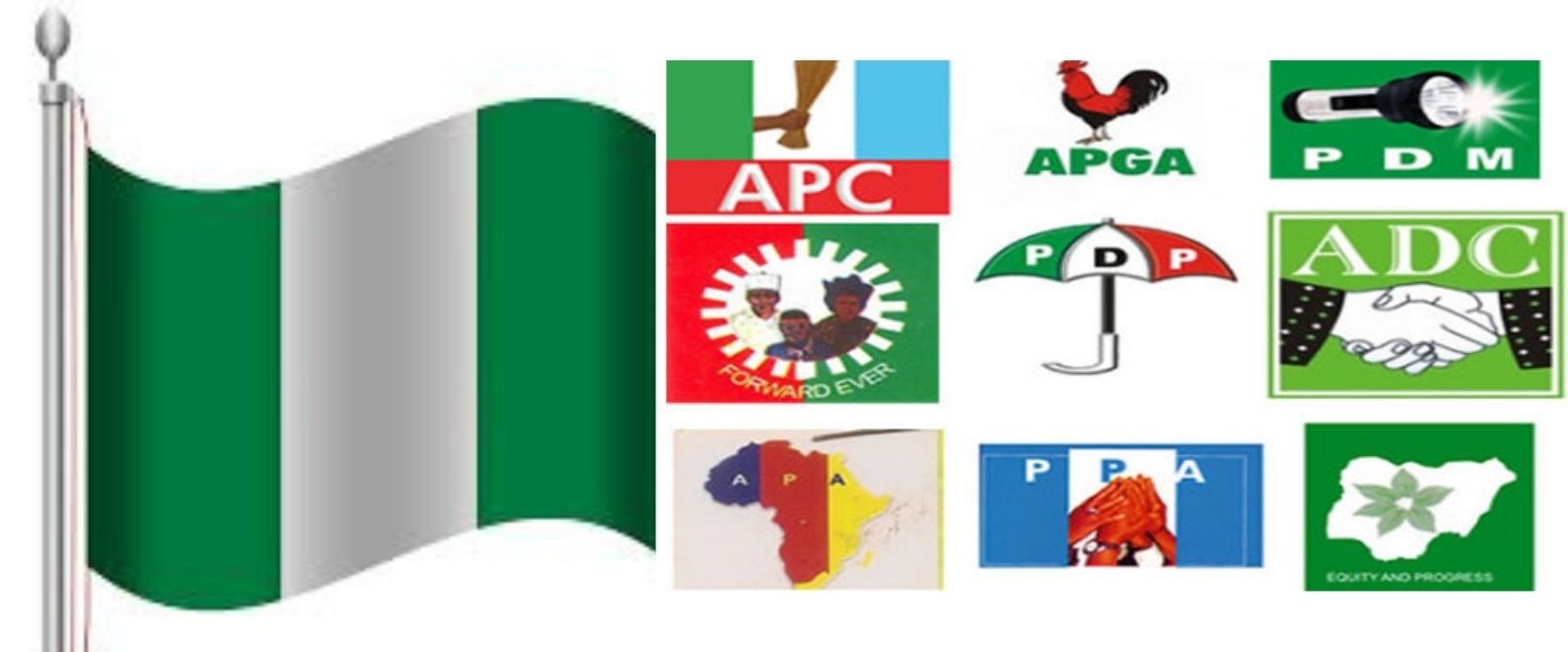



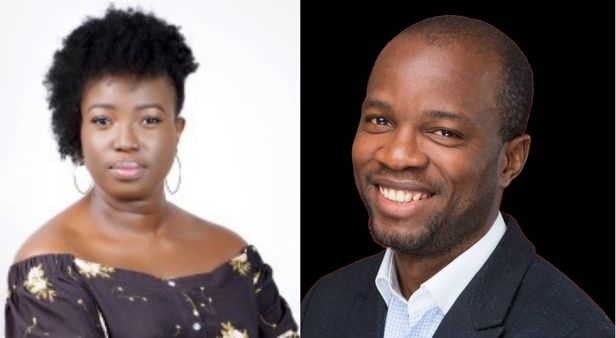
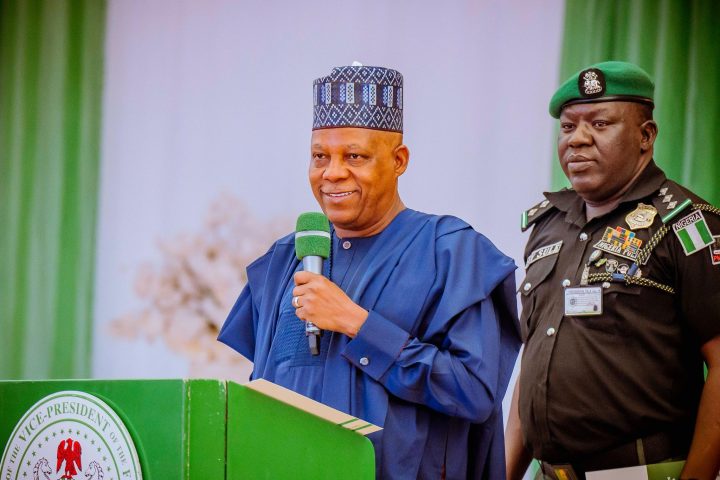






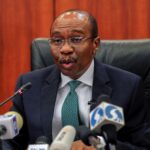


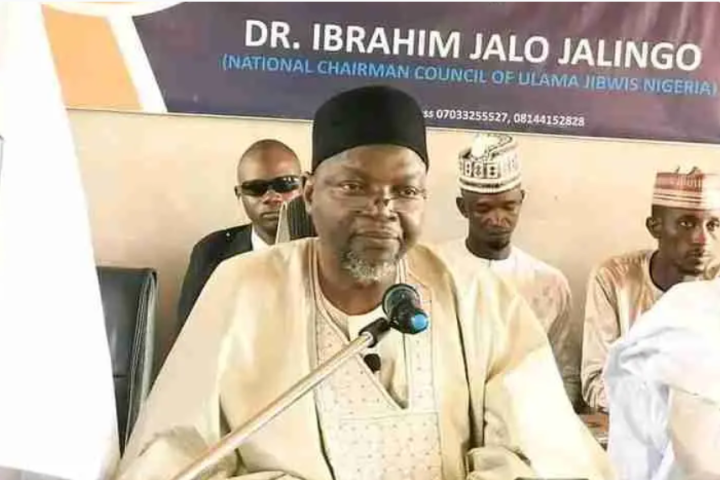
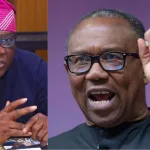
Follow Us